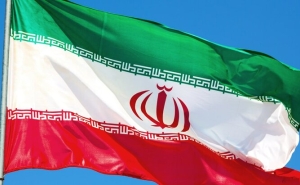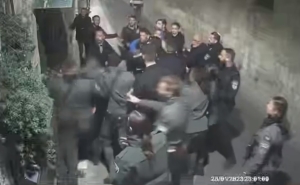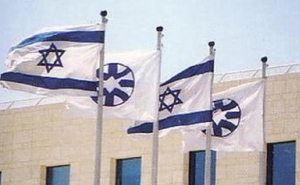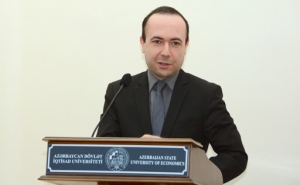Dr. Elisheva van der Hal: Many Holocaust Survivors Lost Their Identity
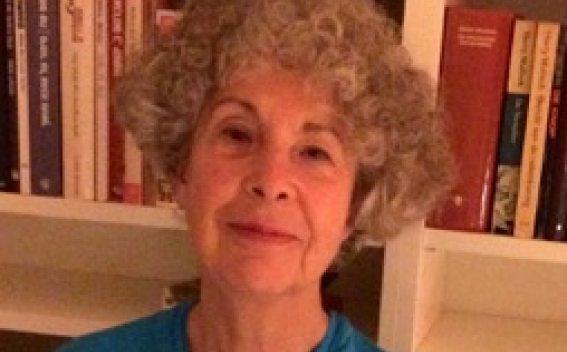
"Armedia" Information, Analytical Agency presents an exclusive interview with Dr. Elisheva van der Hal, psycho-therapist, Clinical Coordinator of Amcha Center for Psychological Support of Survivors of Holocaust and the Second Generation in Jerusalem.
- What are the psychological effects of the Holocaust on Jews on both collective and personal level? Will you bring such examples?
- If you have a mass murder or genocide then there is no way that your people are not affected some way or another, because most of the time in every family there are people that have been murdered. This has both personal and collective effect. Another problem is that it is a manmade disaster. If you have natural disasters like earthquake, then you can say God did this to us, but if it is a manmade and done on purpose, then there stay lots of psychological problems. It causes Post-traumatic stress disorder (PTSD) and all kinds of symptoms of that. What we see in our Jewish population, is that especially on later age people, who passed through Holocaust, become very frightened, they have nightmares, all kinds of psychosomatic problems like heart problems, digesting problems, headaches, etc.
What happened in the Jewish Holocaust was that the shock was so great that people started reacting to it after the first twenty-thirty years. People were busy in building a new life, and it was later that they started to think about it, hence many psychological problems came to the surface. People, who were small during the Holocaust, have been affected the most. Many lost their families, were sent to concentration camps. They were taken by other families, who took care of them. Most of them lost their identity. There were even those, who became Christians. They did not know where they belong, what happened to them. The memory of their lost families and their sufferings slowly came to surface and started torturing them.
- How is it possible to see the connection between such cases with Holocaust?
- Of course, the most vivid one is the nightmares. People see the suffering they went through in their dreams. There are other examples. Many people are afraid of dogs, because there were many dogs in concentration camps. People are afraid to be out of food, as the Germans did not give them food. After the Holocaust, many people had problems of eating, as their digestive tracts were damaged. Many of the survivors could not hear, as in the concentration camps they got typhus.
- Have these psychological damages been compensated?
- The Germans started to give compensation starting from 50s and they went on giving those compensations first for physical damages and later for psychological damages. Nowadays, those who can prove that they are the victims of the Holocaust, gets some kind of compensation. The psychological compensations are connected with the symptoms of post-traumatic stress disorder – it can be depression, it can be anxiety and most of the time these two are together.
- Can we say that Israel has rehabilitation programs for coming out from such psychological situations? How much are these programs used and is there any precedent or any readiness to give this experience to other nations, who have also passed through such sufferings?
- There is an Amcha organization, which started its work from 1989 to take care of the psychological problems of holocaust survivors and their families, as not only those, who survived had problems, but also their children – the second generation. We talk about a transmission of trauma from one generation to the other. If your mother went through slaughter and she, all the time, sees that before her eyes, then your mother affects you. In such situation we see that the second generation, even in some cases the third generation, needs psychological help to understand why they react this or that way in certain circumstances.
For rehabilitation we have psycho-therapy programs, we have group therapy, programs for giving testimony, as it is very important – to give recognition to what somebody went through. We have social clubs in which Holocaust survivors can come together. We have also a volunteer program. They go to the homes of those who survived Holocaust and help them.
Concerning our readiness to share our experience with other nations, who also suffered, I remember a case, when one of our staff members was engaged in the rehabilitation works of what happened in Rwanda.
- Have you done any work concerning the Armenian Genocide?
- No, I know about the Armenian Genocide very painfully from 1981. Then we had a conference in Israel about genocide. We wanted to invite the Armenian Genocide survivors, but the Turkish government vetoed that and the organizers became very afraid and it was not implemented. Till then nothing has been done and I think it was a "diplomatic" failure.
-
 17:08
17:08The regular session of the Anti-corruption Policy Council takes place in Jermuk
-
 15:05
15:05The Prime Minister sends congratulatory messages to the supreme leader of Iran and the President of Iran
-
 11:11
11:11Armenia sends earthquake aid to Turkey
-
 10:43
10:43Commemoration of the Pontiff St. Sahak Partev
-
 09:16
09:16Some roads are closed and difficult to pass in Armenia
-
 19:55
19:55Phone conversation of the Foreign Minister of Armenia with the U.S. Assistant Secretary of State for European and Eurasian Affairs
-
 18:30
18:30Prime Minister Pashinyan and President Khachaturyan meet
-
 18:20
18:20Ararat Mirzoyan with Co-Chairman of the OSCE Minsk Group of France Brice Roquefeuil
-
 17:01
17:01Humans could land on Mars within 10 years, Musk predicts
-
 16:45
16:45France, US urge 'immediate' end to Nagorno Karabakh blockade
-
 16:01
16:01Blockaded Nagorno Karabakh launches fundraiser to support quake-hit Syria
-
 15:59
15:59Earthquake death toll in Turkey rises to 18,342
-
 15:43
15:43Ararat Mirzoyan Held a Telephone Conversation with Sergey Lavrov
-
 15:06
15:06French president rules out fighter jet supplies to Ukraine in near future
-
 14:47
14:475 Day Weather Forecast in Armenia
-
 14:44
14:44President Vahagn Khachaturyan wrote a note in the book of condolences opened in the Embassy of Syria in Armenia
-
 14:20
14:20Azerbaijan’s provocations impede establishment of peace and stability – Armenian FM tells Russian Co-Chair of OSCE MG
-
 12:57
12:57France representation to OSCE: Paris calls on Azerbaijan to restore freedom of movement through Lachin corridor
-
 11:40
11:40Command of Kosovo forces highly appreciated preparation of Armenian peacekeepers
-
 10:16
10:16The United States withdrew from sanctions against Syria for six months the provision of assistance after the earthquake
day
week
month
Humidity: 42%
Wind: 2.06 km/h


